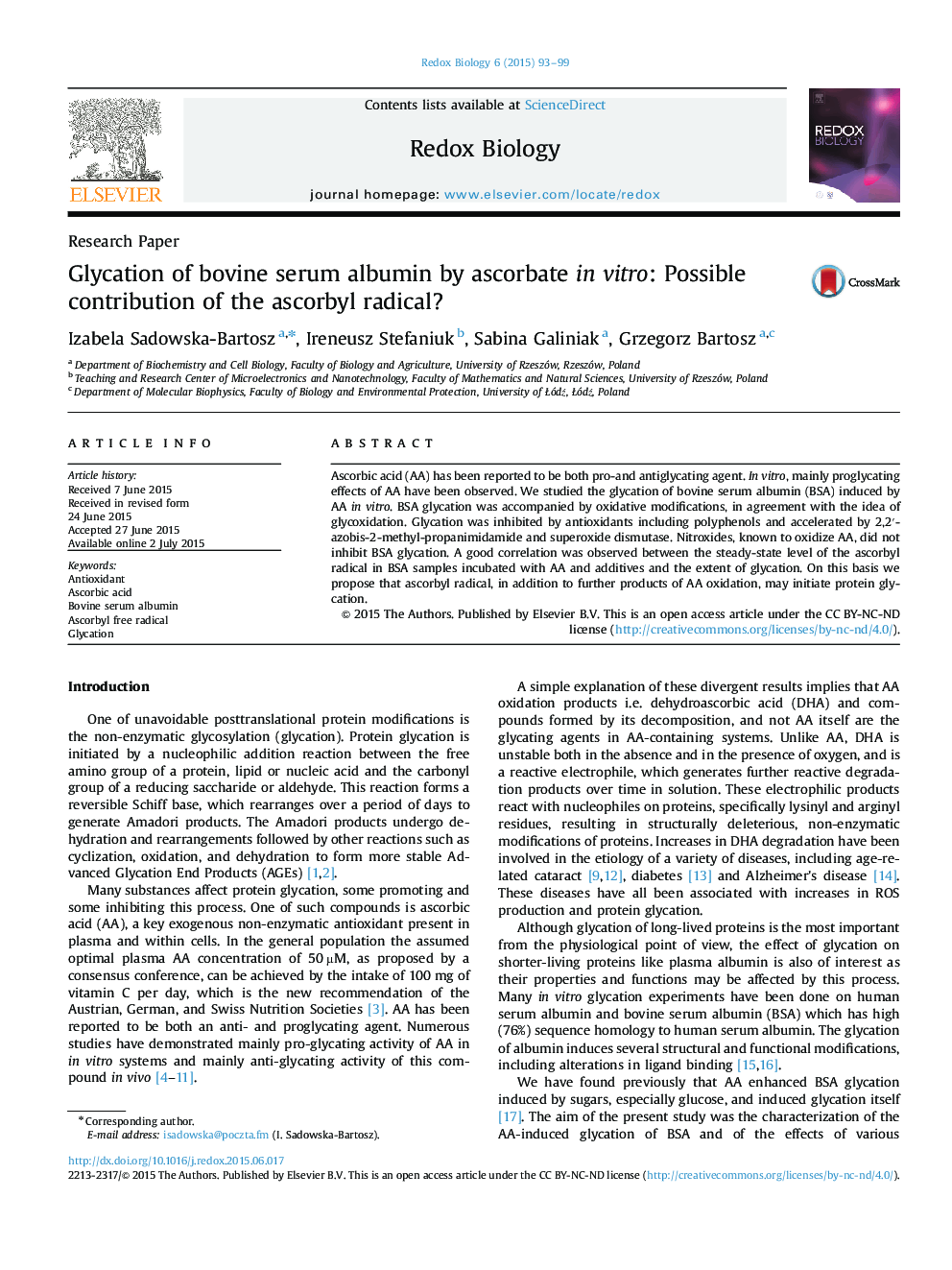| کد مقاله | کد نشریه | سال انتشار | مقاله انگلیسی | نسخه تمام متن |
|---|---|---|---|---|
| 1922918 | 1535844 | 2015 | 7 صفحه PDF | دانلود رایگان |
• Ascorbic acid (AA) induced glycation of bovine serum albumin (BSA) in vitro.
• Antioxidants, including polyphenols, inhibited glycation.
• Nitroxides, known to oxidize AA, did not protect from glycation.
• BSA glycation was accelerated by AAPH and superoxide dismutase.
• Good correlation was found between the level of ascorbyl radical and extent of glycation.
• We postulate that ascorbyl radical is able to induce protein glycation.
Ascorbic acid (AA) has been reported to be both pro-and antiglycating agent. In vitro, mainly proglycating effects of AA have been observed. We studied the glycation of bovine serum albumin (BSA) induced by AA in vitro. BSA glycation was accompanied by oxidative modifications, in agreement with the idea of glycoxidation. Glycation was inhibited by antioxidants including polyphenols and accelerated by 2,2′-azobis-2-methyl-propanimidamide and superoxide dismutase. Nitroxides, known to oxidize AA, did not inhibit BSA glycation. A good correlation was observed between the steady-state level of the ascorbyl radical in BSA samples incubated with AA and additives and the extent of glycation. On this basis we propose that ascorbyl radical, in addition to further products of AA oxidation, may initiate protein glycation.
Figure optionsDownload as PowerPoint slide
Journal: Redox Biology - Volume 6, December 2015, Pages 93–99
